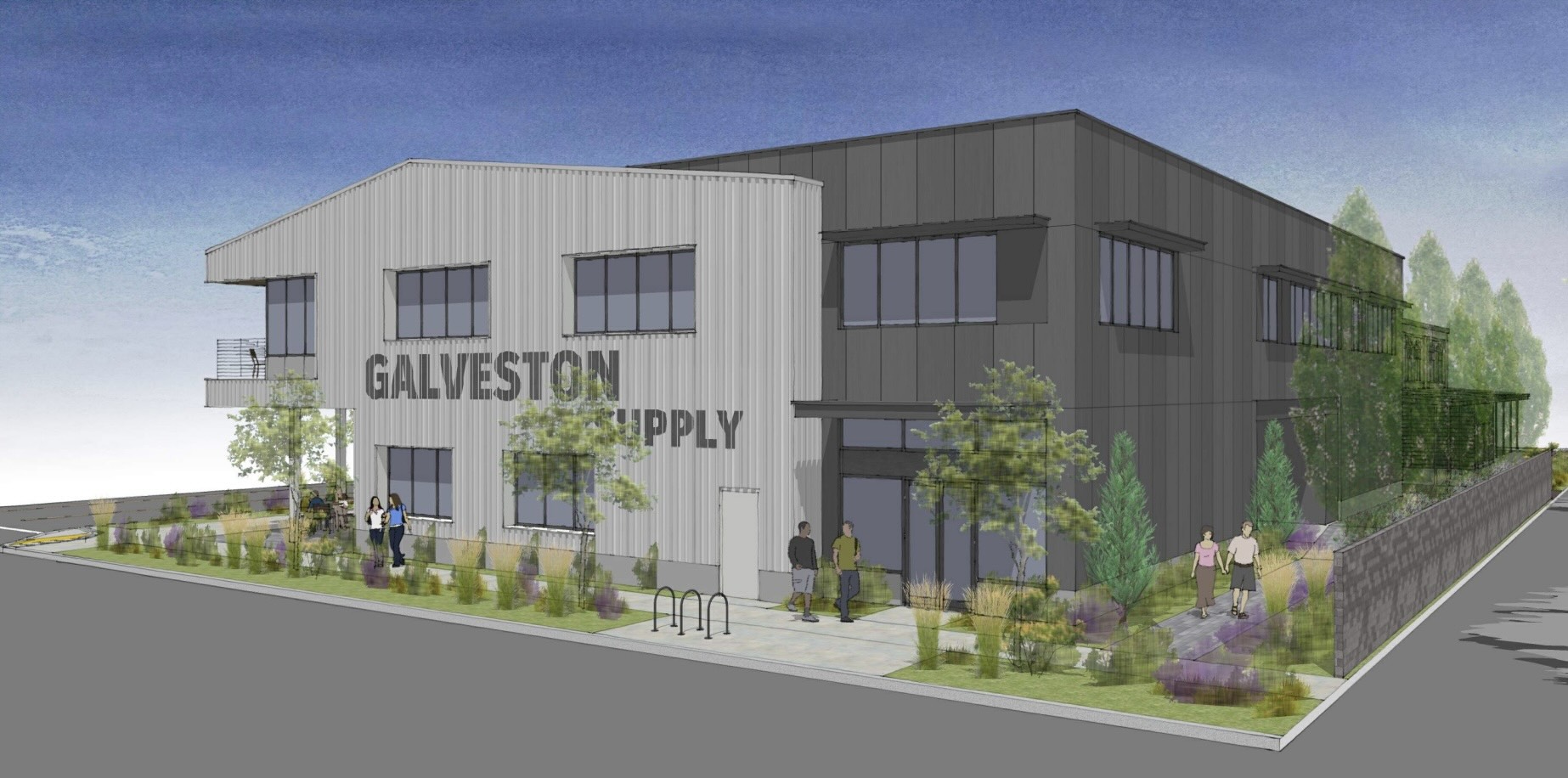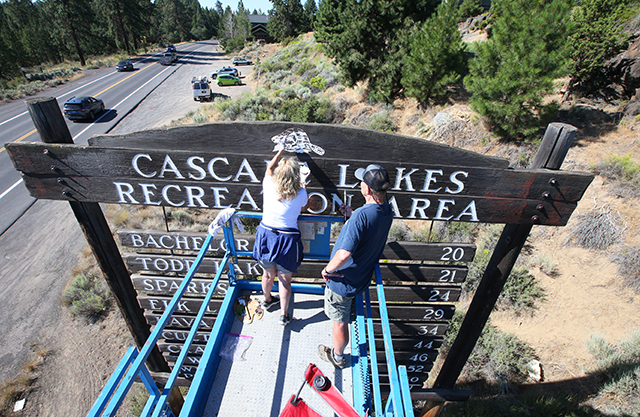$1.1 million in grants to swell outreach at Juniper Ridge
Published 12:30 pm Monday, December 23, 2024

- Central Oregon Villages resident Erin Smith enters her non-congregate shelter, which is one of 20 units, at Central Oregon Villages in Bend.
As part of the plan to confine and eventually quell homeless camping on public land at Juniper Ridge north of Bend, the city of Bend and Deschutes County dished out $1.1 million to augment outreach aimed at moving as many people into shelter or housing as possible before the camp is shut down in two years.
The investment, to be divvied up among seven nonprofit organizations, will put more housing-focused case management workers on the ground at Juniper Ridge — and with greater coordination — than ever.
Trending
It will also boost services like animal care, vehicle maintenance and basic needs — plus a data management system to produce monthly reports as elected officials keep a close eye on the progress.
“I think we’ve got a real good opportunity to get people into better situations,” said Amy Fraley, homeless services manager with the city of Bend. “But we’re realistic, we know that not everyone will want to participate.”
After a land use law dispute among county commissioners and the city nearly tanked the agreement, a joint resolution was signed in October, committing funding from each body and enshrining a plan to designate a 40-acre “safe stay” camping area east of U.S. Highway 97 and west of the Burlington Northern Santa Fe Railway.
According to Bend City Manager Eric King, there won’t be any fencing or other hard structures defining the safe stay area. King said the site will meet state and local definitions of “safe parking.”
Deschutes County, Bend, to close 1,000 acres of Juniper Ridge to camping
Trending
Service providers estimate about 150-200 people live across hundreds of acres of public and private juniper forest north of the Bend city limits, mostly owned by the city. The joint resolution estimates 50-60 camps lie west of the railroad tracks — the future safe stay area — while 20 camps lie east on Bend property. The winding, dusty roads among the camps earned it the nickname “Dirt World.”
The city and county agreed to close the acres east of the railroad tracks by May 31. By the end of 2025, they aim to cut the size of the designated camping area from 40 acres to 20 acres, and then close the area to camping altogether by the end of 2026.
That’s the same deadline by which local governments must spend the last of their federal funding from the American Rescue Plan Act , which are COVID-19 pandemic recovery dollars and the sole source of funding for the Juniper Ridge plan.
Bend and Deschutes County each kicked in $400,000 for Juniper Ridge through the joint agreement, while the city added another $320,000 of rescue plan money through its homelessness grant program. The city also awarded $1.9 million to expand safe parking and increase case management in Bend.
Service providers team up
Most service providers are already doing outreach and have built relationships with people at Juniper Ridge.
One of those is the Shepherd’s House SHARE van, which provides food, water, clothing, tents, stoves, sleeping bags and other necessities to people living without shelter across Deschutes County. It visits Juniper Ridge once per week. According to Jerry Kaping, director of development with Shepherd’s House, the recent $223,000 grant will allow for the purchase of a second van that will spend half of its time inside the new safe stay area.
Juniper Ridge residents prepare for county, city plans to remove them
“It’s pretty taxing right now with just one van,” Kaping said. “It’s spread pretty thin right now. This grant allows us to duplicate, at least, what we’re already doing.”
Shepherd’s House will also hire a new case worker to accompany the van and connect people to other services for medical, mental and physical needs, with a long-term hope that some will move into a more stable situation, whether that be emergency shelter or permanent housing, Kaping said.
New capacity is pouring in as the region realizes the products of state and federal funding from the past several years. Kaping said Shepherd’s House has a separate contract to operate a new 33-unit supportive housing complex on the corner of Cleveland and Fifth Street, which is slated to open in January, and was partially funded with rescue act dollars. Another 76 units of similar nature were created by a renovated motel on Third Street in October. Redmond safe parking provider Mountain View Community Development will soon bring its operations to Bend thanks to more than $600,000 recently awarded by the city, and is also working on a 60-unit supportive housing development in Redmond.
Safe places for homeless to park in short supply in Bend
By the time the city and county close Juniper Ridge to camping at the end of 2026, Central Oregon Villages, a provider of non-congregate shelter pods, aims to double capacity from 22 shelter units to 48. The nonprofit hired a new case manager in October to ride around with the Shepherd’s House SHARE van and connect with people living in camps on public land.
“It is definitely teamwork, and it’s working beautifully,” said Donna Burklo, interim manager of the Central Oregon Villages shelter.
With the new grant, Central Oregon Villages will hire a second case management worker as an increased presence at Juniper Ridge, and bring another part-time worker to full-time.
The new case workers will focus on getting people ready for housing, Burklo said. A big part of that, she said, is making sure unsheltered people are fully entered into the Homeless Management Information System, the region-wide database providers use to track housing readiness among their clients and match them with shelter or housing — or identify the barriers blocking them from getting there.
With a new fleet of case managers, the goal is to reach everyone living on public land at Juniper Ridge, Fraley said. The city estimates about 60% of people will engage with case management services, based on previous outreach engagement at walk-up low barrier shelters.
But increased coordination between service providers could make that number even higher, Fraley said.
“This is an opportunity for all of us to work together and put forth that team spirit in helping people to get housed,” said Jessica Gamble, director of the nonprofit Home More Network, which received $155,000 to provide housing-focused case management and vehicle services.
“If we’re able to address the system as a whole and as a team, there’s a very high likelihood that this could succeed.”







